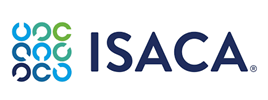- Course overview
- Course details
- Prerequisites
Course overview
About this course
In this Project Risk Management training course, you will gain the skills to identify, measure, and analyze risks in projects of all sizes and scopes. Learn to ensure the success of your projects from beginning to end by quantifying and creating a project risk management plan.
Understanding risk management in project management is a key skill required of all project managers. Attend this course and learn to leverage a proven qualitative risk-analysis process to guide your risk management decisions and determine risk mitigations and time and cost contingencies.
At course completion
After completing this course, students will be able to:
- Manage risk to deliver initiatives that meet stakeholder needs
- Apply scalable templates for your initiative with Risk Management Plans, Risk Registers, and Risk Assessment Matrixes
- Leverage a proven qualitative risk-analysis process to guide your risk management decisions
Course details
Module 1: Overview of Risk Management
- Recognizing risks in initiatives
- Using risk management best practices, tools and techniques to achieve project success
Module 2: Designing Critical Platforms for Success
- Creating a Risk Management Plan (RMP)
- Analyzing contents of a model RMP
- Applying a standard template to create your RMP
- Identifying initiative risk
- Common sources of initiative risk
- Utilizing checklists
- Creating Ishikawa diagrams to analyze cause and effect
- Assessing high-level risks to the organization
Module 3: Developing a Risk Register
- Analyzing contents of a model Risk Register
- Applying a proven template to create your Risk Register
- Communicating risks to stakeholders
- Documenting risks for future assessment
Module 4: Improving Initiative Performance through Qualitative Analysis
- Analyzing risks through qualitative measures
- Performing probability and impact analyses
- Applying the probability and impact matrix
- Advanced applications of qualitative analysis
- Prioritizing analysis results
- Ranking project and operations risks
- Differentiating between acceptable and unacceptable risks
Module 5: Analyzing Risks Using Quantitative Methods
- Quantifying effects of risk events on projects and operations
- Determining probability of cost and time objectives
- Calculating contingency reserves
- Identifying trends in quantitative analysis
- Ranking risks by actuarial cost
- Tools for analysis
- Expected Monetary Value (EMV)
- Three-point estimates
- Probability distributions
- Delphi Technique
- Simulation
Module 5: Risk Response Planning
- Implementing risk response strategies
- Accept
- Avoid
- Transfer
- Mitigate
- Exploit
- Share
- Enhance
- Quantifying residual risks and secondary responses
- Creating contingency plans
- Determining the worst-case scenario
- Recalculating confidence levels
- Finalizing risk budget
- Applying a seven-step process to risk response planning
Module 6: Making Decisions under Uncertainty
- Psychological factors in decision-making
- Practical applications of Prospect Theory
- Recognizing bias with Utility Theory
- Tools to enhance objectivity
- Maximizing returns by payoff tables
- Dealing with unknown risks using workarounds
Module 7: Monitoring and Controlling Risk
- Identifying emerging risks
- Matching identified initiative risk with controls including Risk Audit, Variance Reports and Reserve Analysis
- Anticipating risk events through risk triggers
- Measuring risk using earned value analysis (EVA)
- Ensuring effective change control
- Developing a reliable change request process
- Recommending corrective action
- Leveraging Project and Operations Experience
- Compiling lessons learned in a risk database
- Ensuring continual process improvement
Prerequisites
Project management experience
Enquiry
Course : Project Risk Management
Enquiry
request for : Project Risk Management





















